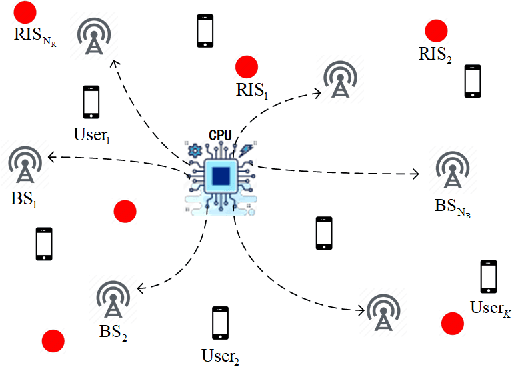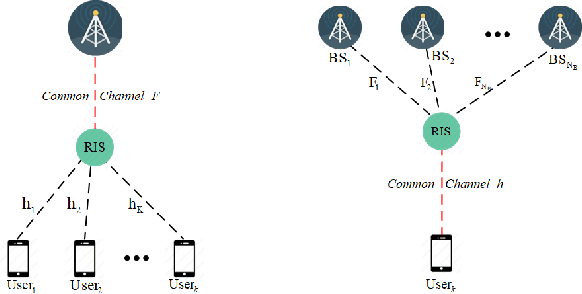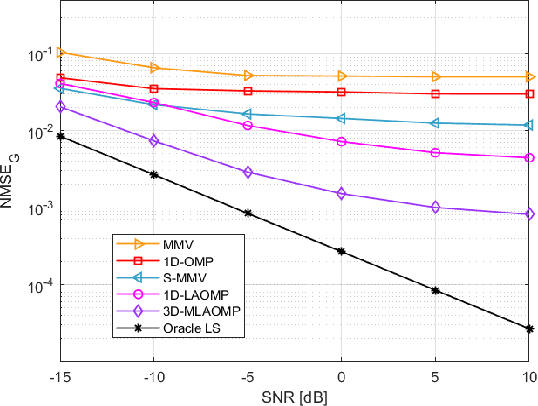Channel Estimation for Reconfigurable Intelligent Surface-Assisted Cell-Free Communications
Paper and Code
Jul 28, 2022



Recent research has focused on reconfigurable intelligent surface (RIS)-assisted cell-free systems with the goal of enhancing coverage and lowering the cost of cell-free networks. However, current research makes the assumption that the perfect channel state information is known. Channel acquisition is, certainly, a difficulty in this case. This work is aimed at investigating RIS-assisted cell-free channel estimation. Toward this end, two unique characteristics are pointed out: 1) For all users, a common channel exists between the base station (BS) and the RIS; and 2) For all BSs, a common channel exists between the RIS and the user. Based on these two characteristics, cascaded and two-timescale channel estimation concerns are studied. Subsequently, two solutions for tackling with the two issues are presented respectively: a three-dimensional multiple measurement vector (3D-MMV)-based compressive sensing technique and a multi-BS cooperative pilot-reduced methodology. Finally, simulations illustrate the effectiveness of the schemes we have presented.
 Add to Chrome
Add to Chrome Add to Firefox
Add to Firefox Add to Edge
Add to Edge